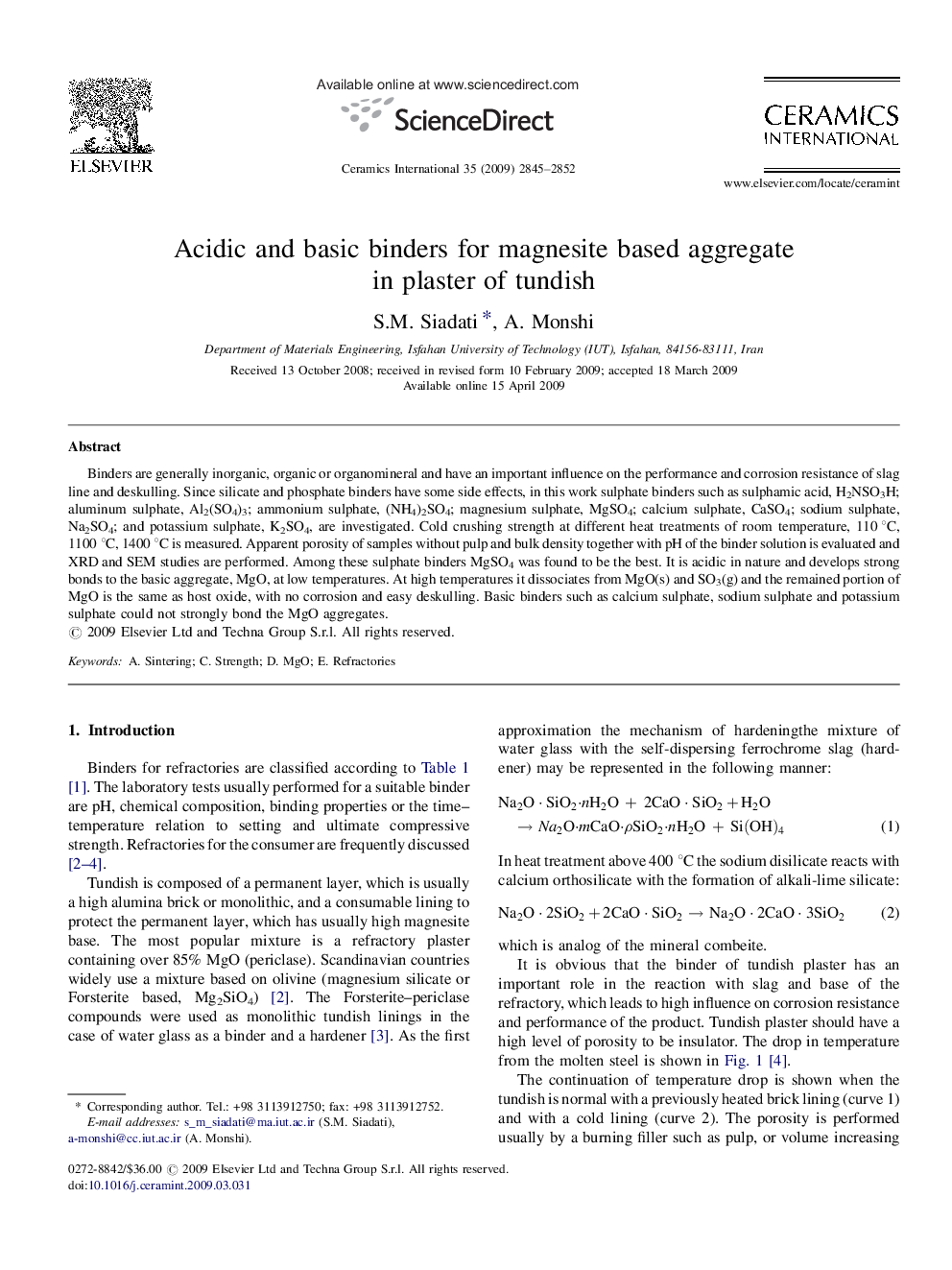| Article ID | Journal | Published Year | Pages | File Type |
|---|---|---|---|---|
| 1464718 | Ceramics International | 2009 | 8 Pages |
Binders are generally inorganic, organic or organomineral and have an important influence on the performance and corrosion resistance of slag line and deskulling. Since silicate and phosphate binders have some side effects, in this work sulphate binders such as sulphamic acid, H2NSO3H; aluminum sulphate, Al2(SO4)3; ammonium sulphate, (NH4)2SO4; magnesium sulphate, MgSO4; calcium sulphate, CaSO4; sodium sulphate, Na2SO4; and potassium sulphate, K2SO4, are investigated. Cold crushing strength at different heat treatments of room temperature, 110 °C, 1100 °C, 1400 °C is measured. Apparent porosity of samples without pulp and bulk density together with pH of the binder solution is evaluated and XRD and SEM studies are performed. Among these sulphate binders MgSO4 was found to be the best. It is acidic in nature and develops strong bonds to the basic aggregate, MgO, at low temperatures. At high temperatures it dissociates from MgO(s) and SO3(g) and the remained portion of MgO is the same as host oxide, with no corrosion and easy deskulling. Basic binders such as calcium sulphate, sodium sulphate and potassium sulphate could not strongly bond the MgO aggregates.
